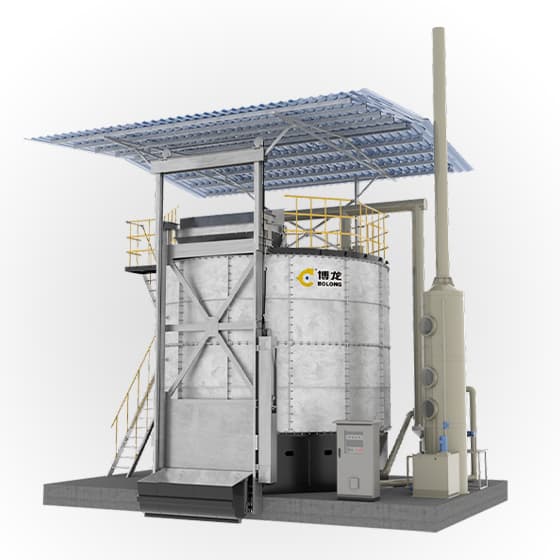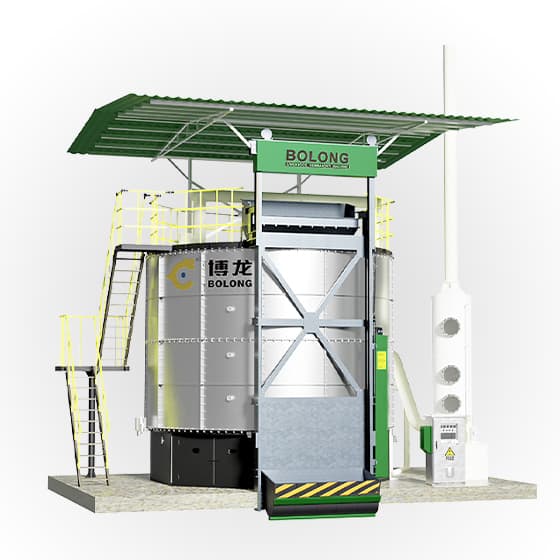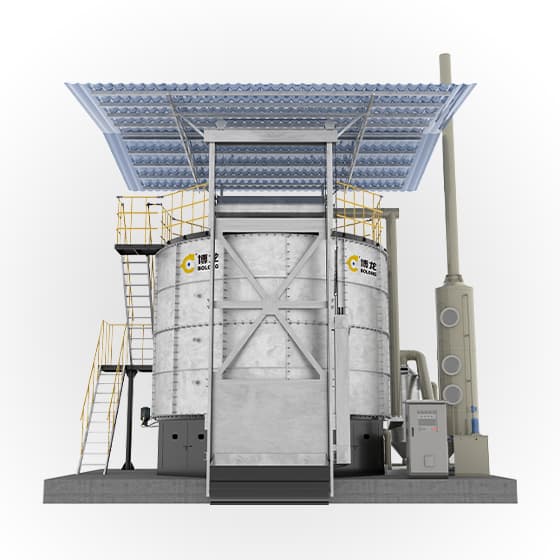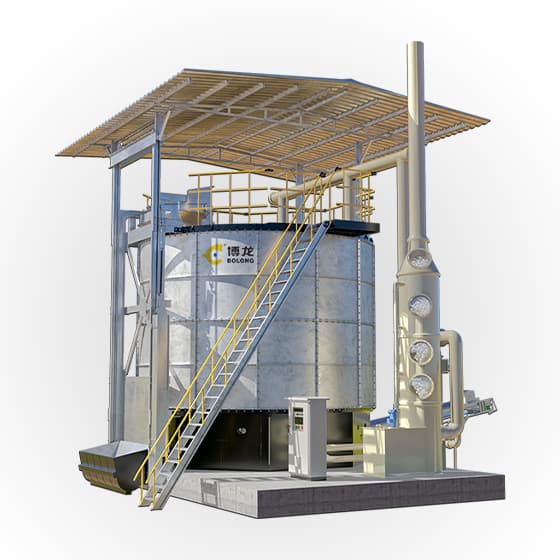Fermentation of Agri-Food Waste: A Promising Route for the
Mar 26, 2021 · 2. Agri-Food Waste: A Rising Problem or a Valuable Resource? Among the different food sectors, it is estimated that fruit and vegetables represent a large part of waste production, notably in the detail that about 45% of the total produced amount is lost in the production and consumption chains, generating a great quantity of waste material [9,10].
Food waste-based bio-fertilizers production by bio-based
Apr 1, 2024 · To address these problems, agricultural farming is moving towards manufacturing bio-based fertilizers via utilizing natural bioresources. Food waste-based bio-fertilizers could help increase yields, nutrients, and organic matter and mitigate synthetic fertilizers' adverse effects. These are presented and discussed in the review.
Organic waste to fertilizer machine
Automated organic fertilizer fermentation pot of organic waste to fertilizer machine made by Shunxin for your waste compost making. The fermentation pot is suitable for the treatment of organic waste, poultry manure, mushroom waste, etc. Equipped it for your fertilizer plants, you can only spend 10 hours to complete the harmless treatment process.
How It Works - Bokashi Cycle
The fermentation process is anaerobic, which means that air is effectively excluded during the process. The microorganisms use enzymes to break down the waste, creating many useful metabolites. Natural products, including plant hormones and cytokines, form and, when placed in the soil or fed to plants, these greatly improve plant activity.
A Perspective of Solid-State Fermentation As Emergent
Jul 27, 2024 · Among the different technologies to treat and valorize organic waste, solid-state fermentation (SSF) is gaining relevance in recent years as it permits the recovery of valuable biomaterials from waste, changing the paradigm: “from waste to raw material source”. SSF is very similar to composting, as it implies the aerobic biodegradation of organic solid waste, but with the objective of
Fertilizer Factory Machine Manufacturer | Organic & Compound
How to make organic waste or raw materials into available fertilizer in a short period? Different from the traditional fermentation method, the composting turner with advanced composting craft will create a good fermentation environment for the raw materials to shorten the fermentation period.
Factory Direct Sales of Clean Waste Manure Treatment
Farming manure, garden waste, municipal sludge, kitchen waste and other wastes are composted by aerobic fermentation equipment, realizing the ripening, harmless, homogenization and drying of materials. It not only produces high-quality organic fertilizer, but also realizes clean production and improves the environment.
Recent advances on organic biofertilizer production from
Aug 2, 2022 · Creating wealth from waste: an approach for converting organic waste in to value-added products using microbial consortia Environ.Technol.Innov. , 25 ( 2022 ) , Article 102092 View PDF View article View in Scopus Google Scholar
Fermentation | Free Full-Text | Hazop Analysis of a - MDPI
The number of bioprocesses for the circular economy of organic waste has grown in recent years. Implementation of new processes and technologies should consider occupational health and safety issues from the initial design stages. Among the process hazards analysis techniques, HAZard and OPerability (HAZOP) methodology is widely used for studying both the process’s hazards and their
Low-waste fermentation-derived organic acid production by
Jun 5, 2021 · Organic acids, e.g, citric acid, fumaric acid, lactic acid, malic acid, pyruvic acid and succinic acid, have important role in the food industry and are potential raw materials for the sustainable chemical industry. Their fermentative production based on renewable raw materials requires innovatively designed downstream processing to maintain low environmental impact and resource efficiency
Organic Fertilizer Fermentation Tank
The Urban Sludge Fermentation Tank is an essential infrastructure designed to efficiently handle and treat urban sludge, including river silt, sewer silt, and other organic waste collected from wastewater treatment plants and urban waterways.
The anaerobic fermentation of food waste: a comparison of two
Oct 1, 2012 · 2.2. Experimental setup. In both reactor types, the experiments were conducted continuously with increasing organic loading rates. Compared to fermentation with the CSTR, the organic loading rate of the FBR system was increased in larger steps over shorter periods based on the known characteristics of the reactor system as well as time constraints.
Solid-State Fermentation from Organic Wastes: A New - MDPI
Dec 12, 2022 · Solid-state fermentation (SSF) is part of the pathway to consolidate waste as a relevant alternative for the valorization of organic waste. The objective of SSF is to produce one or several bioproducts of added value from solid substrates. Solid-state fermentation can use a wide variety of organic waste as substrates thus, it is an excellent candidate in the framework of the circular
Metagenomic insights into microbial mechanism of pH shifts
4 days ago · The presence of bromuconazole fungicide pollutant in organic waste anaerobic fermentation was carried out as well as the influence phenol and benzoate, and biodegradation of bromuconazole
Chicken Manure Fermentation Fertilizer Organic Waste
Zhengzhou Shenghong Heavy Industry Technology Machinery co.,ltd. (short for "Shenghong Technology")is recognized globally as an expert in process design and equipment manufacturer on fertilizer industry, including organic fertilizer production line with 5000 to 100000 tons per year and compound fertilizer production line with 5000 to 200000 tons per year.
-

For fermentation of animal manure into organic fertilizer
Manure Fertilizer Fermentation Tank -11FFG-280 -

For fermentation of animal manure into organic fertilizer
Manure Fertilizer Fermentation Tank -11FFG-160 -

For fermentation of animal manure into organic fertilizer
Manure Fertilizer Fermentation Tank -11FFG-90 -

For fermentation of animal manure into organic fertilizer
Manure Fertilizer Fermentation Tank -11FFG-102